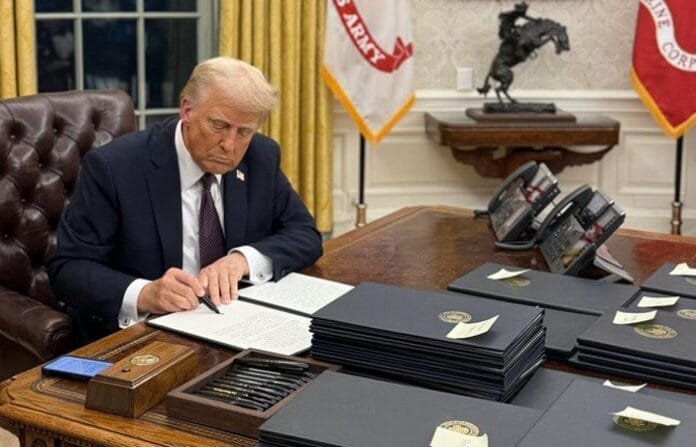President Trump’s Major Financial Aid Freeze: Ukraine Faces Severe Setback, Israel and Egypt Exempted
Since President Donald Trump took office, the U.S. administration has consistently issued new directives that have redefined America’s role in global politics. On Friday, the U.S. Department of State announced a major policy shift—implementing a suspension of nearly all foreign financial assistance. This decision, which includes exceptions for humanitarian food programs, and financial aid to Israel and Egypt, has significant consequences for countries across the globe, particularly Ukraine, which finds itself in an ongoing conflict with Russia.
Foreign Aid Freeze: A Review Process
While the freeze on U.S. foreign aid has been implemented, the Department of State is not ending all assistance permanently. The Department is undergoing a comprehensive review of all foreign aid programs, assessing which ones will continue under the Trump administration’s vision for foreign policy.
This review is expected to take three months, after which the Department of State will prepare a report with recommendations for President Trump. The report will outline which programs align with his America First strategy and which should be suspended indefinitely. This review process is expected to scrutinize the effectiveness of foreign aid, ensuring that it meets U.S. national interests, rather than contributing to what Trump considers unnecessary international expenditures.
The Strategic Importance of Israel and Egypt in U.S. Foreign Policy
The decision to continue providing financial assistance to Israel and Egypt highlights the strategic importance of these countries to the United States in the Middle East. For decades, the U.S. has been a key ally to both nations, with military and economic aid forming the backbone of their bilateral relationships.
- Israel: As one of America’s closest allies, particularly in the Middle East, Israel has long received U.S. support for defense and security purposes. The continuation of U.S. aid ensures that Israel can maintain its military edge in a volatile region.
Egypt: The decision to continue aiding Egypt, despite its controversial human rights record, underscores the geopolitical significance of Egypt in U.S. foreign policy. Egypt plays a crucial role in maintaining stability in the region, particularly regarding the Arab-Israeli conflict, and its cooperation on counterterrorism efforts is considered vital to U.S. national security interests.
Ukraine: The Biggest Casualty of Trump’s Foreign Aid Freeze
Among the hardest hit by this policy shift is Ukraine, which has been engaged in a conflict with Russia for years. U.S. financial aid has been essential in supporting Ukraine’s defense efforts, especially since Russia’s annexation of Crimea in 2014 and the subsequent escalation of violence in the Donbas region. Ukraine has benefited from military support, humanitarian aid, and economic assistance, all of which have been vital for the nation as it navigates the ongoing war.
Under President Joe Biden, Ukraine had received a significant amount of funding for military and humanitarian efforts, but President Trump’s recent move halts any new funding, leaving Ukraine in a precarious situation. Despite Biden’s previous approvals, the new restrictions mean that no further American funds will be directed towards Ukraine’s war efforts, leaving it to seek assistance from other global actors. This freeze could prove to be a severe setback for Ukraine, particularly as it continues to face the might of Russia’s military.

















[…] has led to a big humanitarian problem. Many refugees and people displaced within their country19. The world, including international relations experts, is trying to help. The actions of russia […]